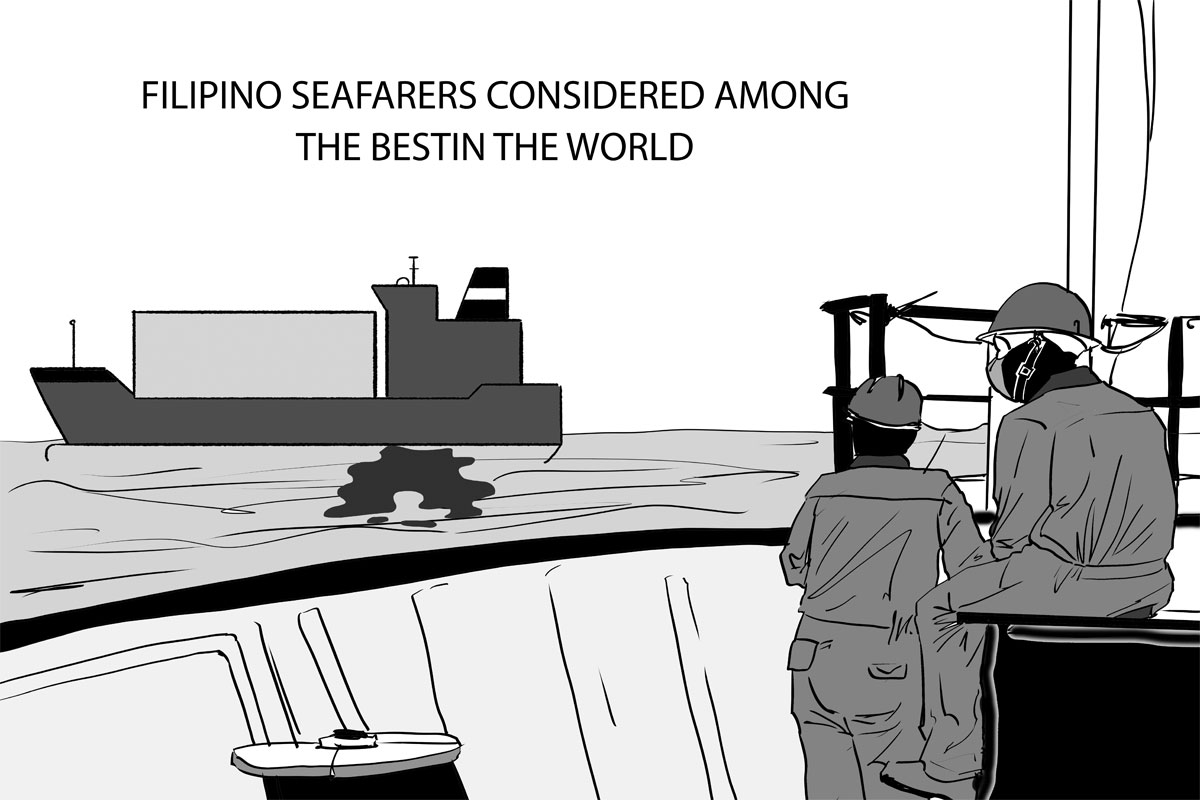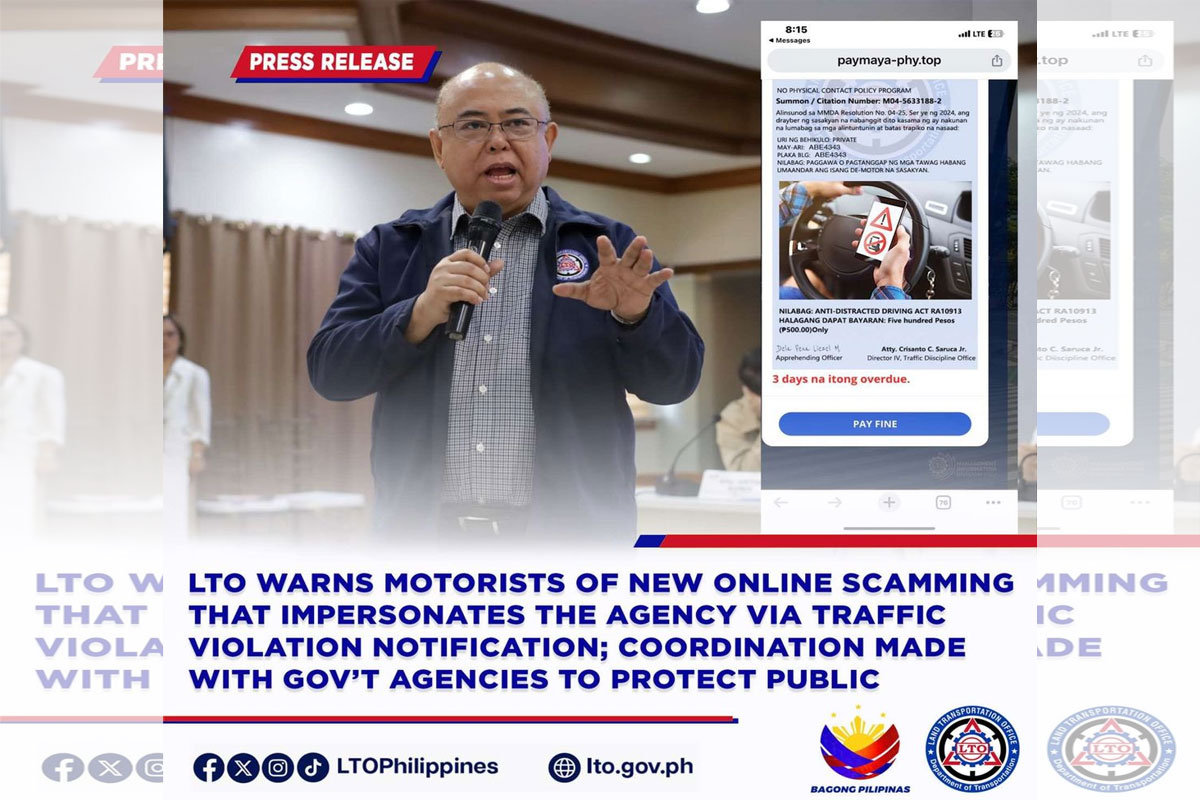
Still wanted: PH seafarers
THE Philippines is a seafaring nation: Its people are natural mariners because they live in over 7,000 islands separated by vast and deep bodies of water.
Filipinos have a rich seafaring history dating all the way back to their Indo-Malayan ancestors who bravely sailed in sturdy vessels to and settle in the pre-Hispanic archipelago.
The drive for exploring, discovering foreign shores has seemingly been genetically ingrained over generations with a steady tide of mariners boarding ships plying domestic and international waters in recent times.
The country has been the world’s largest supplier of seafarers since 1987. It is common to find Filipinos navigating and working in vessels in any part of the Seven Seas, so to speak.
As of last year, there are some 490,000 Filipino seafarers in different parts of the world, according to data from the Philippine Overseas Employment Administration.
That is over a quarter of all global merchant shipping crew members deployed on domestic or foreign-flagged shipping vessels, the single biggest nationality bloc in the global shipping industry.
Overseas Filipino seafarers remit an average of P376.12 billion yearly, certainly a big boost to the country’s economy.
Dr. Conrad F. Oca, president and chairman of the Associated Marine Officers’ and Seamen’s Union of the Philippines, one of the largest seafarers’ unions in the world, said Filipinos are the most preferred seafarers because they are better trained and proficient in English, they have the capacity to learn the latest mechanics and trends in their profession, and they are quite amiable and can easily adapt to the various cultures of their foreign counterparts in the vessels they are assigned to.
But in order for the country to constantly produce world-class and globally competitive seafarers, particularly deck and engine officers, the industry also needs the government’s help.
In December 2021, the European Union had warned the Philippines that its seafarer certificates would be revoked if it failed to comply with the International Convention on Standards of Training, Certification and Watchkeeping for Seafarers.
A previous audit by the European Maritime Safety Agency on the country found some shortcomings, including lack of training equipment and inconsistencies in teaching and assessment.
The government has since boosted efforts to address these gaps. The European Commission lauded the Philippines for these steps, and pledged additional technical assistance to improve education and training of local seafarers.
This is why we are glad to hear from Transportation Sec. Jaime Bautista that the Philippine maritime training and certification system would continue to be recognized by the EC as it extended recognition of the country’s compliance to the STCW.
Bautista said the EC’s decision confirms that the Department of Transportation and Maritime Industry Authority adequately addressed many of the findings by the European Maritime Safety Agency, adding that MARINA worked relentlessly with other stakeholders to address the findings in the EMSA final inspection report of March 2021 as well as EC’s assessment report of December 2021.
According to Bautista, over 49,000 Filipino marine offers and their families stand to gain from EC’s decision.
A growing number of Filipino sailors are being dispatched to Europe, especially to the United Kingdom, Germany, Norway, Greece, and The Netherlands.
There are about 100,000 Filipino seafarers deployed in European-flagged vessels and their deployment would surely have been compromised if the Philippines had not passed the EC audit.
The EC said some issues still need to be addressed, but Bautista assured the EC that the Philippines, through the DOTr and MARINA, would address the issues raised by the Commission.
“We commit to address the remaining areas identified by EC that require further improvement,” he said.
The DoTr chief also welcomed EC’s offer of technical assistance to further improve the implementation and oversight of minimum education, training and certification requirements as well as the living and working conditions of Filipino seafarers.
EC Commissioner for Transport Adina Valean welcomed the Philippines’ efforts to improve the system for training and certifying seafarers, adding that Filipino seafarers “provide a significant and valued part of the European and global shipping industry’s maritime workforce.”
Being considered among the best if not the best seafarers in the world, Filipinos should never have been in danger of being blacklisted if the government and industry stakeholders were diligently doing their duties during the past administrations.
It’s a good thing Bautista, the DoTr and MARINA made significant efforts to comply with the requirements under the International Convention on STCW for seafarers.



















